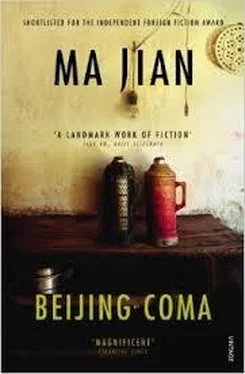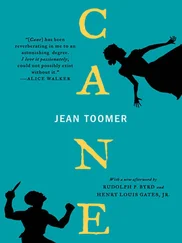When I walked through the school gates my form teacher, Mr Xu, called me over and took me to a room where two policemen were waiting for me.
This was the first time that I’d experienced real terror. My stomach went cold, I felt nauseous, then my whole body began to shake.
The policemen asked me my name then said: ‘You must come with us.’
Mr Xu stubbed out his cigarette and said, ‘Dai Wei, you must own up to everything. This is the opportunity to move forward that you’ve been waiting for.’ I opened my mouth, speechless with terror, and nodded. The roar inside my head was so loud I couldn’t hear what the students outside were shouting.
I walked out of the school gates, my head bowed low, with one of the policemen in front of me and the other one behind. I wondered whether my legs were bent. I seemed suddenly to have become much shorter.
When I reached the police station, my skin was hot and sweaty, but my bones felt cold.
I quickly tried to think through what they might have found out about me. I thought of Lulu. Perhaps she had passed around the copy of A Young Girl’s Heart that I’d given her, and someone had reported the matter to the police. Perhaps Shuwei, who’d lent me the book in the first place, had been detained, and was now locked up in the room next door. I didn’t know what to do.
I was supposed to take my brother back home for lunch. It was twelve already. Police officers on their way to the canteen passed through the corridor outside holding their aluminium lunch boxes. An oily smell of deep-fried meatballs wafted into the room.
One of the officers who’d arrested me walked in and asked whether I had any money on me.
I searched my pockets and pulled out five jiao’s worth of coins.
He looked at me and said, ‘Go and get yourself some steamed rolls from the stall across the road, then come straight back here.’
I hurried outside and ran over to the stall. I had crossed that road hundreds of times before, but that day everything looked unfamiliar to me: the locust trees seemed taller and larger, the road looked wider too. A stream of yellow smoke rose from the chimney of the dressmaker’s shop and hovered in the windless air. I didn’t recognise any of the faces that passed by.
After lunch, the two officers returned. One of them said, ‘Just own up to what you’ve done. It’s easy to get into this place, but hard to get out.’ Then he left the room.
‘Come here!’ said the other officer. He leaned against the table and lit a cigarette. I didn’t know what he’d eaten, but I could smell chives in the air.
I stood in front of him, holding up my trousers. They’d confiscated my belt to stop me running away. When he looked down at the note he was writing, he reminded me of the electrician who worked in the school boiler room. Black hairs pricked through the pores above his mouth. He put down his pen at last and said, ‘Do you know why we’ve brought you here?’
‘No.’
He sat down and swung his feet up onto the table. He looked like he was about to take a nap. ‘We gave you all morning to think things over. If you own up now, we might let you go. Just tell me what kind of shameful things you’ve been up to recently.’
‘I read A Young Girl’s Heart .’ I had been standing up for hours. I longed to squat down.
‘Who gave it to you?’
‘Wang Shuwei.’
‘Who’s he?’
‘He’s in my class at school.’
‘Who else did you pass the book to?’
‘No one. I just read it myself.’
‘Dai Wei. Look into my eyes. Who else read the book? There’s no point lying. We have a list of names.’
I didn’t dare reply to his question.
‘Own up to what you’ve done.’
‘I made a handwritten copy of the book.’
‘So it wasn’t enough for you to read it — you had to copy it out as well.’ He got up and walked over to me. ‘Who did you give the copy to?’ He was shouting now. My legs trembled and I sank into a squat. He kicked me to the ground, grabbed my belt from the table and whipped me over the head. He hit me harder than my father had ever done.
‘I won’t do it again, I promise!’
‘Where is the copy?’ His leather shoe was pressed against my chin.
‘I gave it to Lulu.’
‘Who’s she?’
‘Zhang Lulu. She’s in my class as well.’
‘You seem to have been very busy lately. What else have you been up to? Let me prod your memory. Did you not recently wander through your compound singing “ You’re a flower in bud. How I long for you to come into bloom ”? Eh?’ He kicked me to the ground again, then picked up the thermos flask from the table. My mind flashed back to the Cultural Revolution, when a group of Red Guards pulled our neighbour, Granny Li, out of the opera company’s dormitory block and ordered the rest of us to bring out our thermos flasks. Once we’d brought them outside, we had to stand and watch as the Red Guards poured ten flasks of boiling water over Granny Li’s head.
‘Tell me what else you’ve done,’ the officer said, removing the lid of the flask.
I stared at him, rigid with fear and blurted, ‘I’ll never read another pornographic novel again, I promise, or sing any licentious songs, or smoke cigarettes…’ I fell onto my knees and sobbed.
‘Little hooligan! If we don’t teach you a lesson now, you’ll end up with a bullet in your head. Look at all these letters we’ve received about you!’ He poured more water into his teacup then pulled out some letters from a file.
I couldn’t see what the letters said, so I quickly racked my brain, searching for another crime that I could confess to. ‘I groped Lulu,’ I finally admitted.
‘Where?’
‘In a cement pipe.’
‘Just the once?’
‘Yes, I haven’t touched her again since then.’
‘Did you trick her into going there with you?’
‘No. We were out on a date.’
‘A date — my arse! That’s not called a date, it’s called having illicit sexual relations! Open your legs!’ He gave me a sharp kick. I howled in pain and rolled onto the concrete floor.
‘You must write down the details of every crime you’ve committed. I want names, places and dates. If you confess to everything, we might let you off. Don’t forget that your dead father was a member of the Five Black Categories. If it hadn’t been for Deng Xiaoping’s Reform Policy and your good marks at school, you would have been executed ages ago, you evil son of a rightist.’
I sat down and started writing. I didn’t want to bring shame upon my school. By nightfall I still hadn’t finished. I heard screams and the sound of breaking glass as someone was being beaten up next door. I hated myself for not being as courageous as the Communist heroes in our textbooks. At the first sign of violence, I’d crumbled and owned up to everything.
The officer looked at my written confession and said, ‘Which hand did you stick into her knickers? How long did you keep it there? Where else did you touch her? I want every detail.’
In the middle of the night I heard my mother shouting in the corridor: ‘My son’s still young. He’s got a lot to learn. I promise I’ll give him a good talking-to…’
I broke into tears. My groin was still aching from the policeman’s kick. I felt as though I’d sunk into a hopeless black hole. I didn’t know what punishment was awaiting me. I thought of the convicts I’d seen dragged onto execution grounds during public trials our class had been taken to, and how their bodies shuddered on the ground after the soldiers’ bullets hit their heads. One time our class was allocated front-row seats. When the young convict with the shaven head stood before the firing squad, his eyes seemed suddenly to focus on me. After the bullets struck his head and he fell to the ground, his legs kicked in the air so long that one of his shoes fell off.
Читать дальше












